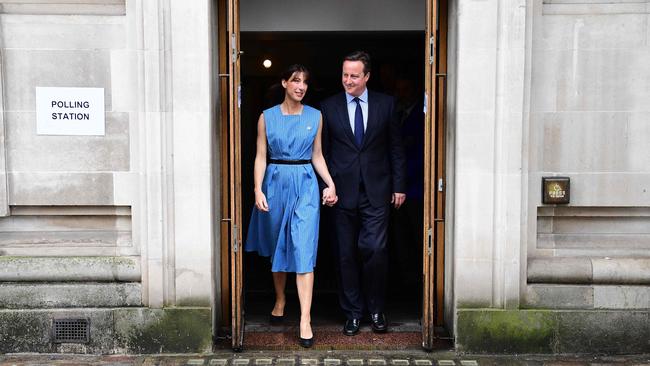
The published opinion polls are nearly a dead heat, with the size of the turnout in a voluntary vote, and the way the substantial undecided vote breaks, likely to determine the result.
By British standards the contest has been bitter, with the murder of pro-Remain Labour MP Jo Cox completely stalling what had been a huge surge of support for the Leave campaign.
The death of Cox was the death of Leave’s advantage.
Both sides of the campaign have tried hard not to be seen exploiting the young MP’s tragic killing and her bereaved husband has been a model of restraint and dignity. But sympathy for Ms Cox has flowed into sympathy for her pro-EU views and conveyed a popular sense, no matter how unfair, the whole Leave endeavour is fraught with danger.
A decision by Britain to leave the EU would, however, open up extraordinary opportunities for Australia, though the Turnbull government’s official position is our interests would be served by Britain remaining inside the EU.
But if it left the EU, suddenly the fifth-biggest economy in the world — the most dynamic in Europe and over the last few years generally one of the fastest growing of the developed economies — would be looking for trade deals.
A nimble government in Canberra could grasp the historic chance to lead and symbolise global recognition of a post-EU Britain. And in an economy where we have the deepest links of custom and familiarity, we could set ourselves up for an even closer and more productive economic relationship.
That’s not the official Canberra attitude, at least not yet, though our shrewdest living former prime minister, John Howard, takes that view.
The British campaign has been alive with exaggeration, but its main arguments have become clear.
Prime Minister David Cameron has stressed the economic benefits of integration with the EU, despite its sluggish economic performance. Labour leader Jeremy Corbyn, also supporting Remain, although much less enthusiastically, emphasises the social protections guaranteed in EU law. Most of the panjandrums of business, hating change and allergic to uncertainty, and conscious they could earn a lot of goodwill with Cameron’s government, have come out for Remain, though a significant minority of business leaders favour Brexit.
Although the figures are hotly contested, London’s The Daily Telegraph has reported that there were 2.4 million EU immigrants to Britain between 2011 and 2015. Pro-Leave Tory MPs have asked Cameron in parliament when he will be able to implement his pledge to get annual immigration down to less than 100,000 a year. They ask him this because they know he can do nothing about it while Britain is in the EU.
Pro-Leave Justice Secretary Michael Gove links the vast flow of North African and Middle East migrants into Europe to Britain’s inability to control immigration from EU countries. Once they get resident status in any EU country, they are free to come to Britain and claim welfare benefits.
Cameron has lined up British and international leaders in battalion strength to support the Remain campaign. It has been a ferocious effort to intimidate the British voter. Cameron has predicted a vote to leave could lead to a new European war. European Council president Donald Tusk has gone one better, saying that a British vote to leave could signal the end of Western civilisation.
Chancellor George Osborne promises an emergency Brexit budget with £15 billion ($29bn) of spending cuts and £15bn of new taxes should British voters ignore his instructions. Barack Obama says Washington would have no interest in negotiating a trade deal with a Britain that had left the EU. Instead, the US President says, Britain would go to the back of the trade queue.
All of this exaggerated fear- mongering has an edge of hysteria, bluff and unreality about it. The fear campaign rests on a threat and a paradox.
The threat is that if Britons dare to leave the EU, otherwise rational statesmen and economic leaders will work to punish and brutalise the British economy, even if it is against their own interests. The paradox is that the EU was supposed to be about free trade, liberalism and democracy, but it has become the antithesis of those qualities and now determines that if you want to practise those virtues outside the EU asylum, it will respond with illiberalism, trade restrictions and undemocratic measures.




Today the British people take their most momentous national decision since they joined the European Economic Community in 1973 — a decision they ratified overwhelmingly at a referendum in 1975.